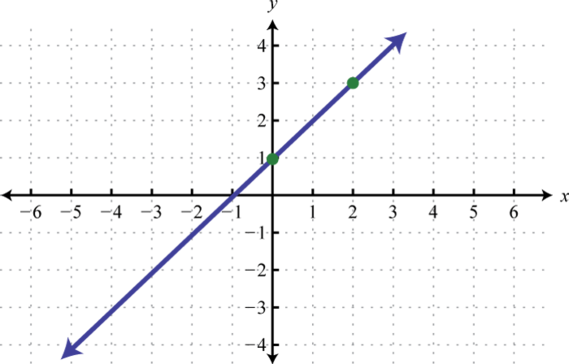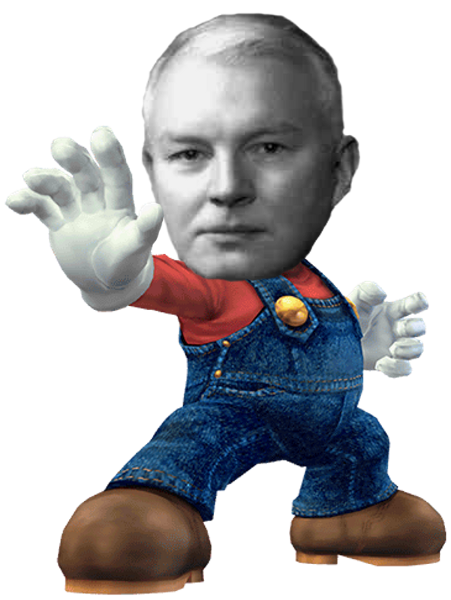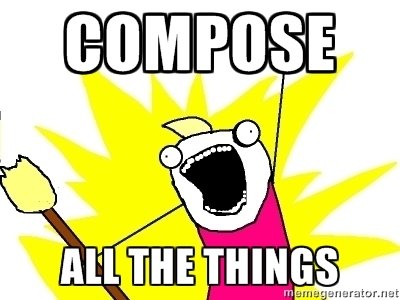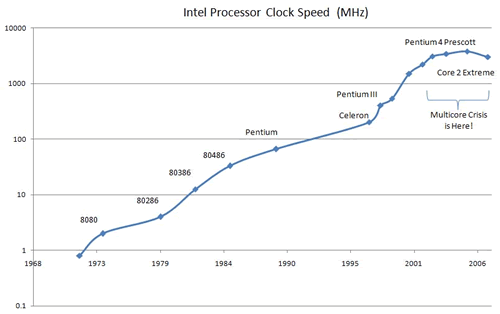DA FUNC
@gypsydave5 @deniseyu21
A quick-and-dirty intro to FP

Stuff we're gonna talk about
- Programming Paradigms
- FP Language Features
- Show me how this damn thing works!
- Dave explains why you should care
- Questions?
Part I
Programmin'
paradigms
Object
Oriented
Functional
Imperative
Declarative
Imperative
Telling the computer how to do something
dogs_called_erik = [];
for (i = 0, i < dogs.length, i += 1) do
if dogs[i].name == 'Erik'
dogs_called_erik.push dogs[i]
end
endDeclarative
Tell the computer what to do, but not how to do it
SELECT * FROM dogs
WHERE dogs.name = 'Erik'In modern programming languages,
imperative and declarative are relative terms
Object Orientation
"I thought of objects being like biological cells and/or individual computers on a network, only able to communicate with messages... I wanted to get rid of data."
Alan Kay, creator of Smalltalk
OO uses state to store and manipulate data.
Methods are ways for objects to communicate.
class Dog
def initialize(name)
@name = name
end
def name
@name
end
def rename(new_name)
@name = new_name
end
def woof
"Woof!"
end
end
Functional
Key differences from OO
- No objects
- No messages
- Lots of functions
- Much data
- Wow
Functional programming only needs two things:
data and functions.
What do we mean by data?

"data"
1432043295
["dave" "denise" "josh"]
{
"languages": {
"object-oriented": [
"ruby",
"smalltalk"
],
"functional": [
"clojure"
]
}
}What's a function?
f(x) = x + 1

y = f(x), where f(x) = x + 1
function woof (name) {
return "Woof " + name + "!";
}
Functions map
inputs to outputs.
(Similar to methods,
but without homes)
Language design is rarely ever completely OO or FP.
(Except maybe Haskell.)
Part II
Functional language features
1. First class functions

Not just a really, really fancy function.
First-class functions can be:
-
passed to other functions
-
returned by other functions
In languages without first-class functions, it's hard to get a reference to a function without calling it.
def say_hello
"hello!"
end
say_hello
# "hello!"
# no, stupid Ruby! tell me what 'say_hello' isOO languages like Ruby and Java
get around this with lambdas
say_hello = lambda { "hello!" }
say_hello
# <Proc:0x007ff9b2a59138@(irb):1 (lambda)>
say_hello.call
# "hello!"You would be correct in thinking that
this feels clumsy and obfuscating.
In languages with first-class functions,
the default behaviour is to REFERENCE, not call functions.
function yo () {
return "yo!";
}
yo
// [Function: yo]
yo()
// "yo!"This lets us
reason about functions
in the same way that we already
reason about objects
in OO paradigms.
2. Referential transparency
Functions can always be replaced
with their results
without changing
overall behaviour.
Because
// so if
function sum (a, b) {
return a + b;
}
sum(1, sum(2, 3))
// is the same as
sum(1, 5)Given an input, no matter how many times the function is called, the output will be the same.

How do
non-referentially-transparent functions look?
Let's see some contrived examples...
function sum (a, b) {
const n = Math.random();
if (n < 0.5) {
return a + b;
} else {
return 'wtf';
}
}
sum(3, sum(1, 2))
// Maths only works sometimes herelet counter = 0;
function next (number) {
counter++;
return number + counter;
}
next(1); // 2
next(1); // 3
next(1); // 4Referential transparency is
determinism inside the
scope of the function.
What about everything that happens
outside the function?
Glad you asked...
3. Functional purity

Not just a really, really innocent function.
Pure functions cause no side effects.
No mutation of state
No unexpected outputs
Return what you mean,
and nothing more!
let mutableVar = '';
function emitDirtyState () {
mutableVar += 'blah ';
return mutableVar;
}This is impure:
function emitDirtyState () {
console.log("I'm a side effect");
return "yo";
}This is impure:
function emitDirtyState () {
someNewGlobalVar = "wahoo!";
return "wtf?!?";
}
// you laugh, but this
// has been done beforeThis is REALLY impure:
4. Higher-order functions

Functions are data that can be
inputs to other functions.
You've already done this if you've written a block in Ruby
cats = ["Felix", "Tom", "Puss in Boots", "Garfield"]
cats.map { |cat| cat.upcase }
// now JS!
cats.map(function(cat) { return cat.toUpperCase() })Higher-order functions let us abstract
new functions out of old functions
It's hard to explain this without examples, so...
Part III
Show me how this damn thing works!
Without fp principles, modifying behaviour of existing functions
can be really tedious
// Suppose you have this amazing code
function addTwoTogether (a, b) {
return a + b;
}Product owner decides that the user will only ever be adding 3. always.
// new code for new requirements
function addThree (a) {
return a + 3;
}// old code
function addTwoTogether (a, b) {
return a + b;
}Product owner decides, actually, user will need to add 5 instead of 3. but definitely only 5, and always 5!
// new code for new requirements
function addFive (a) {
return a + 5;
}// old code
function addThree (a) {
return a + 3;
}Actually, PO doesn't know what the end user really wants. let's just build something flexible for changing business requirements...
A brief recap:
function addTwoTogether (a, b) {
return a + b;
}
// Great, but we only ever want to add 3
function addThree (a) {
return a + 3;
}
// JK, requirements change, now let's add 5, definitely
function addFive (a) {
return a + 5;
}
// User didn't like it, add 10 now... and so on and so on...
// and maybe more requirements change later
// shit, if only we had a way to automate this like the
// lazy-ass programmers we are.....Behold... currying

no, not that kind

Haskell Curry
(just in case you didn't know)
// A simple arity-of-2 curry function
function curryTwoInputs (fun) {
return function (a) {
return function (b) {
return fun (a, b);
}
}
}A few libraries like Lodash and Rambda have helper functions do to this
var _ = require('lodash');
function addTwoTogether (a, b) {
return a + b;
}
var curriedAddTwoTogether = _.curry(addTwoTogether);
var addTen = curriedAddTwoTogether(10);
addTen(5); // 15
// We can define new ones without manually writing a new function
var addEighteen = curriedAddTwoTogether(18);
addEighteen(20); // 38
Besides currying, another really cool functional thing you can do...
Functional composition
Remember maths class?
f(x) = 2x
g(x) = x + 3
h(x) = f(g(x))
h(1) = f(g(1)) = f(4) = 8Lisp-based languages
read similarly to maths
(And don't use the word "function" as much)
Most of the time,
composed Functions get evaluated
right to left
(inner to outer)
(defn add
[a b]
(+ a b))
(add 4 5) ;; 9
(add 5 (add 3 (add 1 2))) ;; 11
// a simple arity-of-2 compose
function simpleCompose(fun1, fun2) {
return function (x) {
return fun1(fun2(x))
}
}once again, lots of great functional js helper libraries here
var _ = require('ramda');
addTwo(2) // => 4 ... remember this guy?
addTwo(addTen(2)) // => 14 ... we can keep feeding them in...
// We can toss functions together arbitrarily now
var addTwoThenTen = _.compose(addTwo, addTen);
addTwoThenTen(1); // 13
addTwoThenTen(100); // 114var addFiveThenSeven = simpleCompose(addFive, addSeven);
addFiveThenSeven(10); // 22
addFiveThenSeven(0); // 12
var addAllTheThings = simpleCompose(addTwoThenTen, addFiveThenSeven);It turns out, functional composition is a lot like stacking things together

Part IV
4. Dave rants for a while



def log_formatter(log)
log.group_by do |entry|
entry[:time]
end.values.map do |entries_by_time|
entries_by_time.reduce(:merge)
end
end





